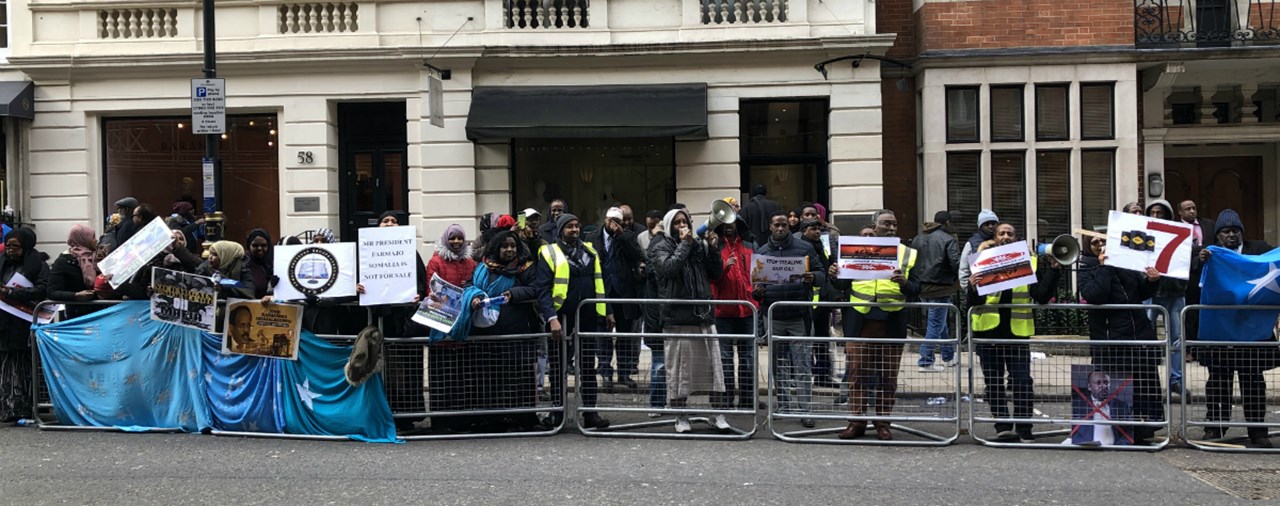Somalia’s first licensing round could be a tough sell

By Ian Lewis
The launch of a Somalian offshore licensing round at a London roadshow in February did much to showcase both the geological potential of the acreage on offer and the efforts being made by the fragile state’s government to lure foreign investors who have been absent for decades.
Seismic survey firm Spectrum, which organised the roadshow in conjunction with the Somali government, is promoting 15 newly offered blocks in both shallow and deep water. Following the launch of the tender protocol on 7 February, the stated deadline for applications is 11 July, with the outcome of bidding process to be decided by 7 November. PSAs would then be signed by December 2019.
According to Spectrum, all three of the country’s offshore basins-Obbia in the north, Coriole off central Somalia and Jabu-Lamu Basin in the south-have oil potential in their early cretaceous deposits. Jabu-Lamu’s older late Jurassic rocks also offer gas and condensate potential. Spectrum stressed the latter basin’s similarity to the geology of Mozambique’s Rovuma Basin, eager to draw parallels with a region that has yielded large gas finds.
Before 1991, when the Somali state collapsed into violent unrest, international oil companies (IOCs) were aware of the country’s potentially interesting offshore. They drilled more than 60 wells, albeit without a major discovery-Spectrum puts that down to poor data and inaccurate geological modelling.
Competitive terms
The data is now more detailed and Somalia’s political situation more stable than it has been over the last quarter of a century. But investors will still need some convincing to plough money into what was, until recently, regarded as a failed state, even if drilling offshore offers some insulation from onshore risks.

Pedro Van Meurs, a consultant advising on the round, told the meeting the government take is around 54-66pc-intended to be well below those on offer in Mozambique, Tanzania and Kenya. Signature bonuses are set at $2mn for most blocks. Royalties are based on sliding scales, on a percentage adjusted by daily production, plus a percentage based on price. There is no carried interest for a state oil company.
Qualification criteria require all applicants to have adequate financial resources to carry out the necessary activities. Operators bidding must have experience of drilling in water greater than 500m depth. Non-operators bidding need to show they are financially sound.
However, the country’s parliament has yet to ratify an amendment to Somalia’s petroleum law, which must be in place for the PSAs to be signed. Mudey said he expected the amendment to be ratified once parliament, which was in recess, had been reconvened. But neither he nor Somalia’s petroleum minister Abdirashid Mohammed Ahmed could provide a firm date by which it would happen-a potential point of concern for bidders.
Background of unrest
Meanwhile, protests by opponents of the Somali government at the London meeting drew attention to the potential for political unrest to undermine the oil and gas sector’s development. Several dozen demonstrators outside Claridge’s hotel, where the meeting was held, protested against the licensing round, claiming the process would be corrupt. A protestor also interrupted the meeting itself to shout criticism of the country’s president Mohamed Abdullahi Farmajo, before being escorted from the room.
While Al-Shabab has suffered setbacks, it remains a potent force. The group has carried out several deadly attacks since the start of 2019, including the detonation of a car bomb that killed 11 people in the capital, Mogadishu; and the targeted killing of the head of Dubai’s P&O Ports’ operation in Puntland, a semi-autonomous region of Somalia.
SOURCE: Petroleum Economist